At virtually every level, the 2020 decennial Census is in serious trouble. The Trump administration continues to press for a new Census question on each respondent’s citizenship status, despite warnings from the National Academy of Sciences and others that the question will discourage millions of immigrants and others from responding at all. The administration also has sharply cut the funding necessary to carry out a successful decennial census, pointing to prospective savings from the expanded use of IT systems and online responses. Unfortunately, the Government Accountability Office (GAO) reported last week that these systems are understaffed, over budget, behind schedule, and highly vulnerable to cyberattacks and breakdowns that pose a “high risk” or “very high risk” to the 2020 Census.
The Census Bureau’s ability to resolve these problems is complicated by its dual character. I oversaw the 2000 decennial count as Under Secretary of Commerce for Economic Affairs, so I am very familiar with the Bureau’s insistence that its mission and activities are strictly scientific, unsullied by politics. This self-admiring view is half right. Statistical science does dictate how the Bureau collects and analyzes data used across the federal government. But the Bureau cannot truly be above politics, because everything it does has immediate political applications and implications.
This distinction between what the Census Bureau does and how it does it lies at the heart of its current crisis. Put another way, the Bureau has to answer to the demands of its political funders as well as the statistical sciences; and for the first time in about 20 years, those demands are incompatible.
The truth is, the political significance of the decennial Census precludes any pretensions of independence from political oversight. What is more patently political than the allocation state by state of the 435 seats in the House of Representatives, based directly on decennial Census data? Or the distribution of $800 billion in annual federal funds across counties, congressional districts and states, based again on data from the decennial as well as the Bureau’s ongoing monthly surveys?
The value of those politically critical results rests on the Bureau’s capacity to collect and organize disparate data according to scientific procedure and analytics; and normally, no conflicts arise. Politicians have no interest in the demands of the statistical sciences—unless they become convinced that bending those procedures and goosing the analytics will help them politically.
That is precisely what happened to the 2000 decennial Census, when then-Speaker of the House Newt Gingrich convinced his caucus that the Census Bureau’s plan to address an expected “undercount” (failing to accurately count certain groups in certain places) would damage the GOP’s hold on some congressional districts. The plan involved conducting a huge sample of some 1,000,000 households on top of the full count, based on a scrupulously non-political, multi-year study by the National Academy of Sciences.
Gingrich’s claim was nonsense—state legislatures, not the Census Bureau, determine where those district lines fall. No matter. House Republicans attached an amendment to an omnibus spending bill that would have barred sampling. To its credit, the Clinton administration backed the scientists and refused to go along, even shutting down the government to do so. In the end, the politicians won. After the Republicans took the White House in 2000, the leadership of the Census Bureau announced that, to its surprise, the five-year, $500 million sampling program did not produce reliable results. There were two possible explanations. On its face, the startling announcement suggested that the Census Bureau was incompetent technically, a view I never shared. More plausibly, the “non-political” Census leadership considered the Bureau’s budgetary prospects over the next four to eight years and decided to not challenge the new administration over its scientific principles.
A similar scenario is unfolding today. There is no doubt that the Trump administration believes it will derive political benefit from injecting the new question on citizenship in the 2020 decennial. It even has a cover story. According to Commerce Secretary Wilbur Ross, the citizenship question will provide new data to help the Justice Department enforce the Voting Rights Act. It’s true that the Census Bureau conducts hundreds of surveys every year to help federal agencies and offices administer their programs. It’s also true that all of those programmatic surveys are part of the Bureau’s monthly Current Population Surveys, not part of the decennial exercise designed to allocate seats in the House of Representatives and set the baseline for distributing federal funds.
Moreover, there is no debate that the question will taint the decennial data used for those legitimate purposes by reducing participation by many millions of people. And like the campaign to bar sampling for the 2000 decennial, promoting a large undercount in 2020 by including the citizenship question probably is not even sound politics. Its impact on both the number of seats in Congress for each state and the distribution of federal funding would be scattershot in political terms, with the largest adverse effects falling on red Texas, purple Florida, and blue California.
The real purpose of this benighted effort appears to be political messaging, namely that this can become one more anti-immigrant issue that plays to Trump’s political base. In this respect, the citizenship question is part of the same strategy that gave us the administration’s clumsy and cruel program to separate children from their parents at the U.S.-Mexican border, and its latest campaign to challenge the citizenship status of thousands of Hispanics because they reside in towns near that border.
Much as it did 20 years ago, the Census Bureau faces a Hobson’s choice, one already familiar to the Justice Department and national security agencies. President Trump holds the authority and resources they need to carry out their legitimate missions—but his terms to allow them to use those powers and resources would undermine those missions. Ultimately, it may be a quandary that can be well resolved only when he is no longer president.
The Brookings Institution is committed to quality, independence, and impact.
We are supported by a diverse array of funders. In line with our values and policies, each Brookings publication represents the sole views of its author(s).


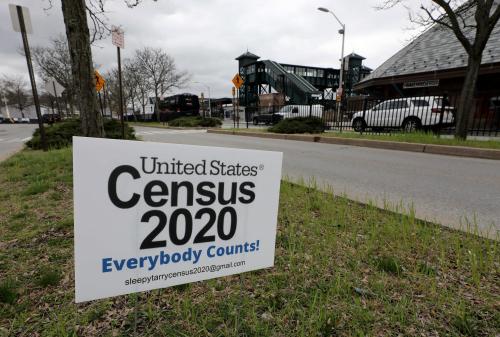
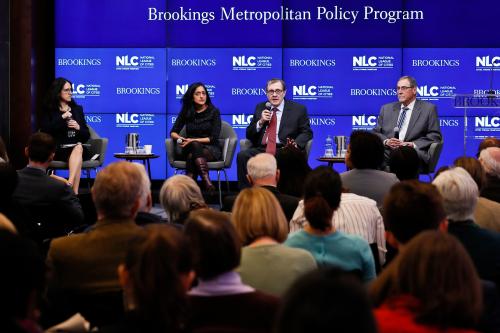
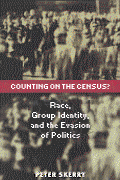
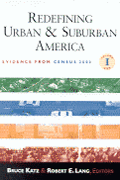
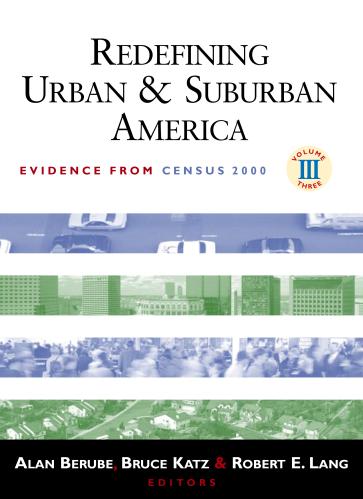



Commentary
The decennial Census has big political and scientific problems, and not for the first time
September 11, 2018